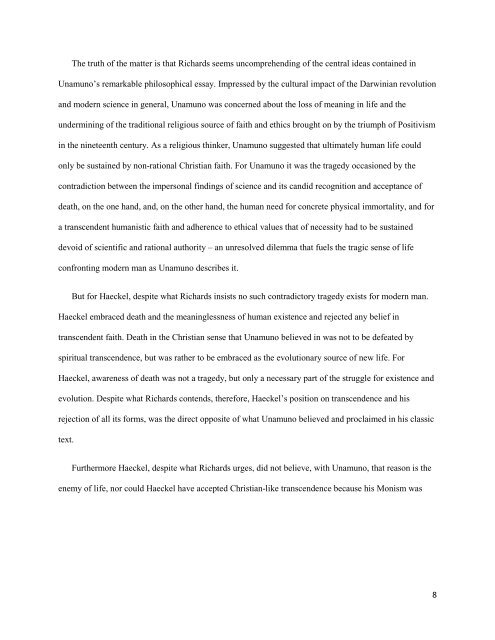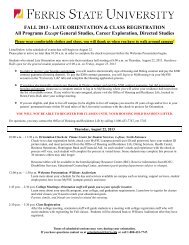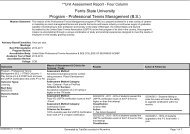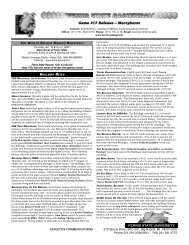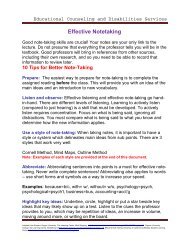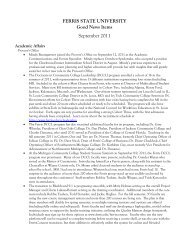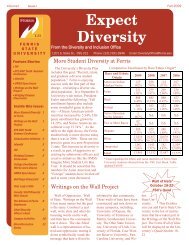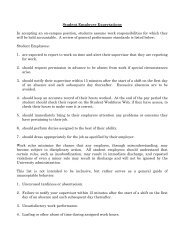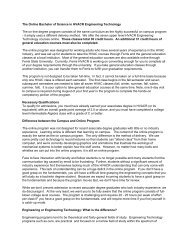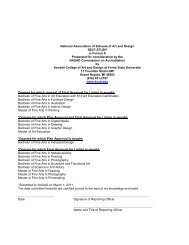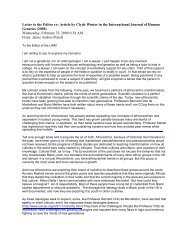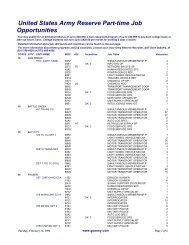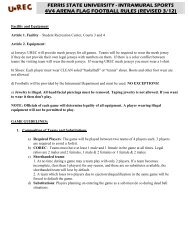Daniel Gasman - Ferris State University
Daniel Gasman - Ferris State University
Daniel Gasman - Ferris State University
Create successful ePaper yourself
Turn your PDF publications into a flip-book with our unique Google optimized e-Paper software.
The truth of the matter is that Richards seems uncomprehending of the central ideas contained in<br />
Unamuno’s remarkable philosophical essay. Impressed by the cultural impact of the Darwinian revolution<br />
and modern science in general, Unamuno was concerned about the loss of meaning in life and the<br />
undermining of the traditional religious source of faith and ethics brought on by the triumph of Positivism<br />
in the nineteenth century. As a religious thinker, Unamuno suggested that ultimately human life could<br />
only be sustained by non-rational Christian faith. For Unamuno it was the tragedy occasioned by the<br />
contradiction between the impersonal findings of science and its candid recognition and acceptance of<br />
death, on the one hand, and, on the other hand, the human need for concrete physical immortality, and for<br />
a transcendent humanistic faith and adherence to ethical values that of necessity had to be sustained<br />
devoid of scientific and rational authority – an unresolved dilemma that fuels the tragic sense of life<br />
confronting modern man as Unamuno describes it.<br />
But for Haeckel, despite what Richards insists no such contradictory tragedy exists for modern man.<br />
Haeckel embraced death and the meaninglessness of human existence and rejected any belief in<br />
transcendent faith. Death in the Christian sense that Unamuno believed in was not to be defeated by<br />
spiritual transcendence, but was rather to be embraced as the evolutionary source of new life. For<br />
Haeckel, awareness of death was not a tragedy, but only a necessary part of the struggle for existence and<br />
evolution. Despite what Richards contends, therefore, Haeckel’s position on transcendence and his<br />
rejection of all its forms, was the direct opposite of what Unamuno believed and proclaimed in his classic<br />
text.<br />
Furthermore Haeckel, despite what Richards urges, did not believe, with Unamuno, that reason is the<br />
enemy of life, nor could Haeckel have accepted Christian-like transcendence because his Monism was<br />
8


